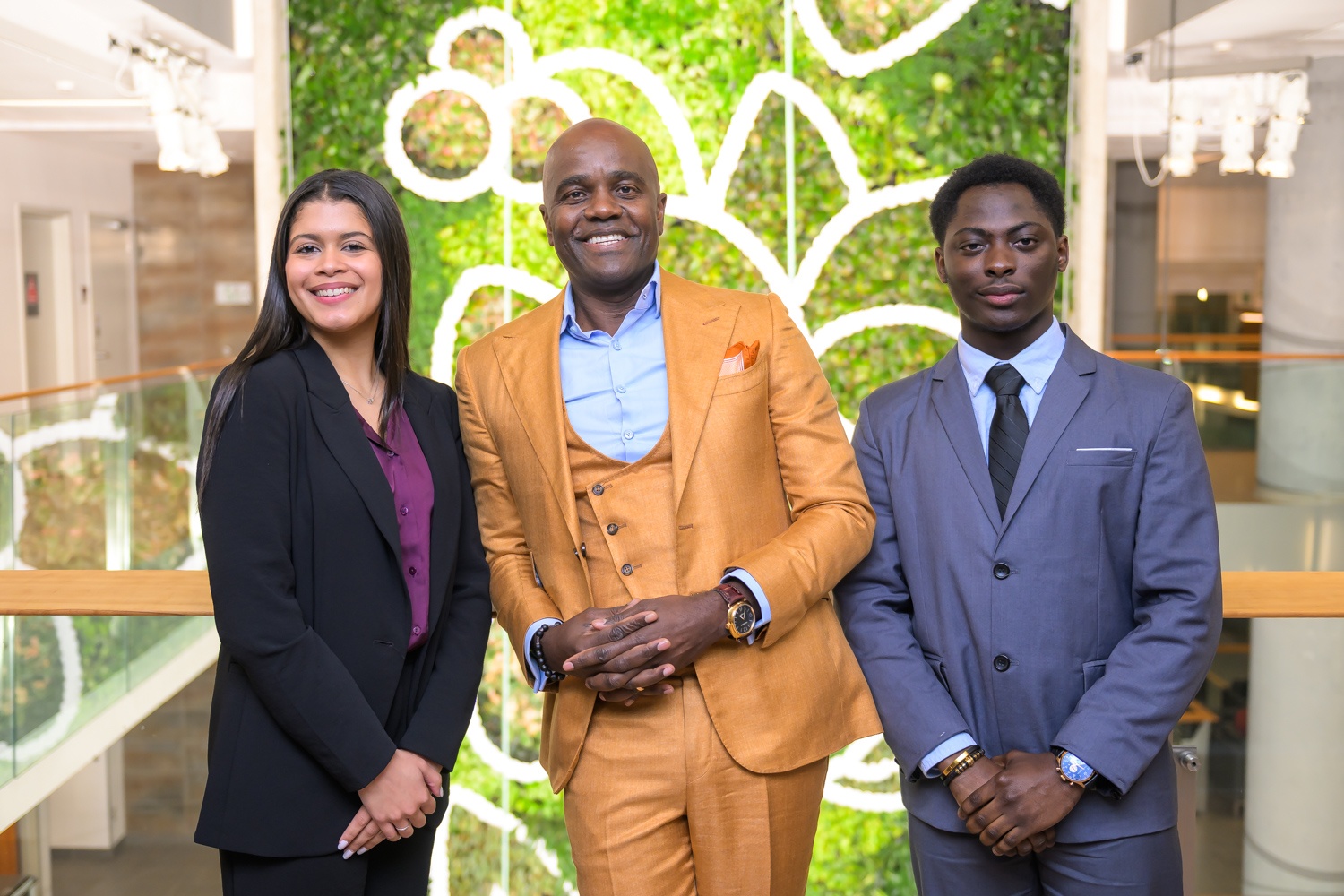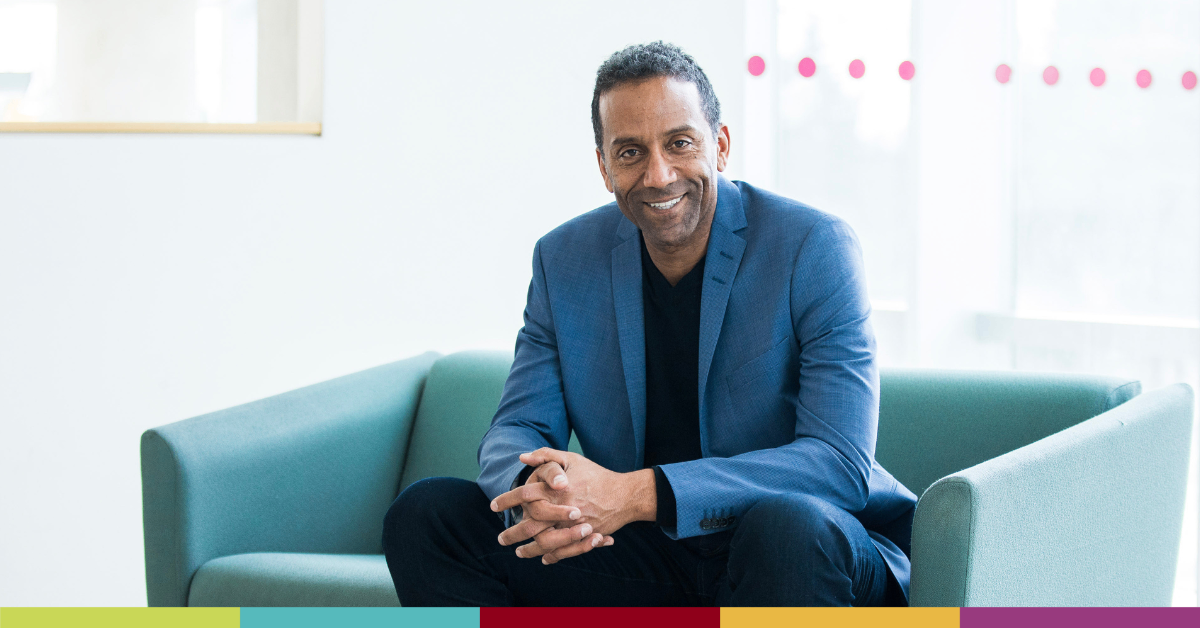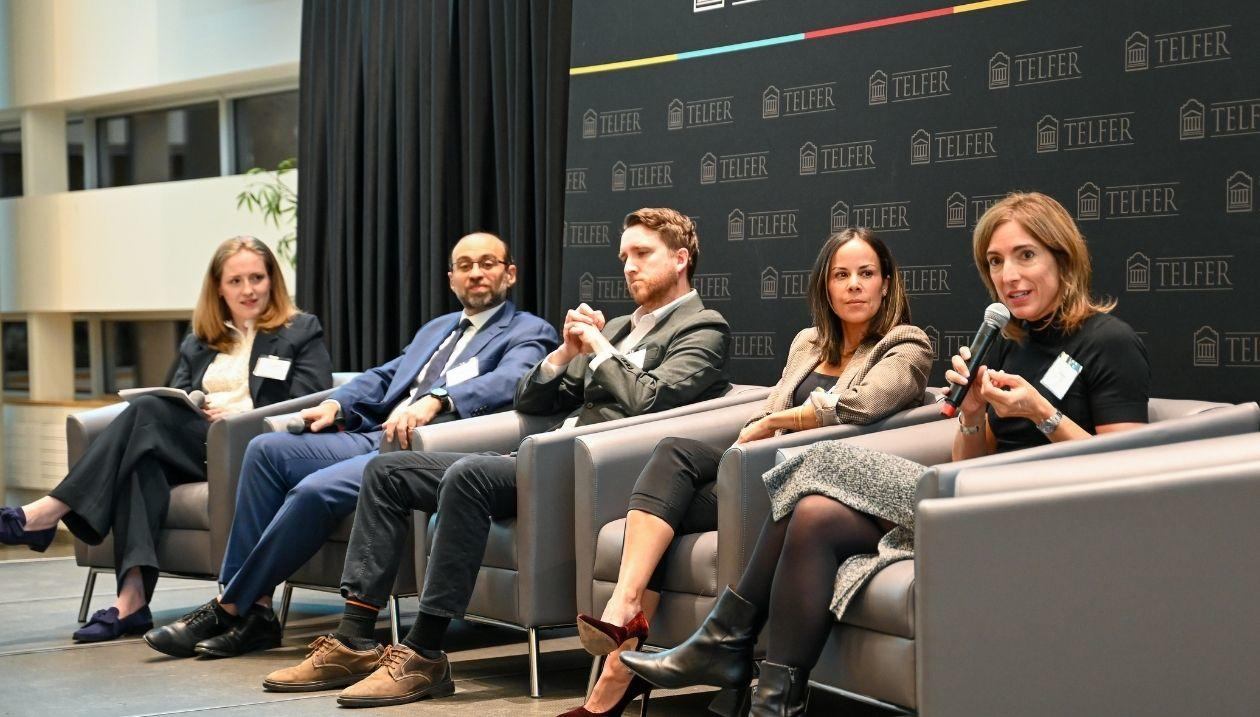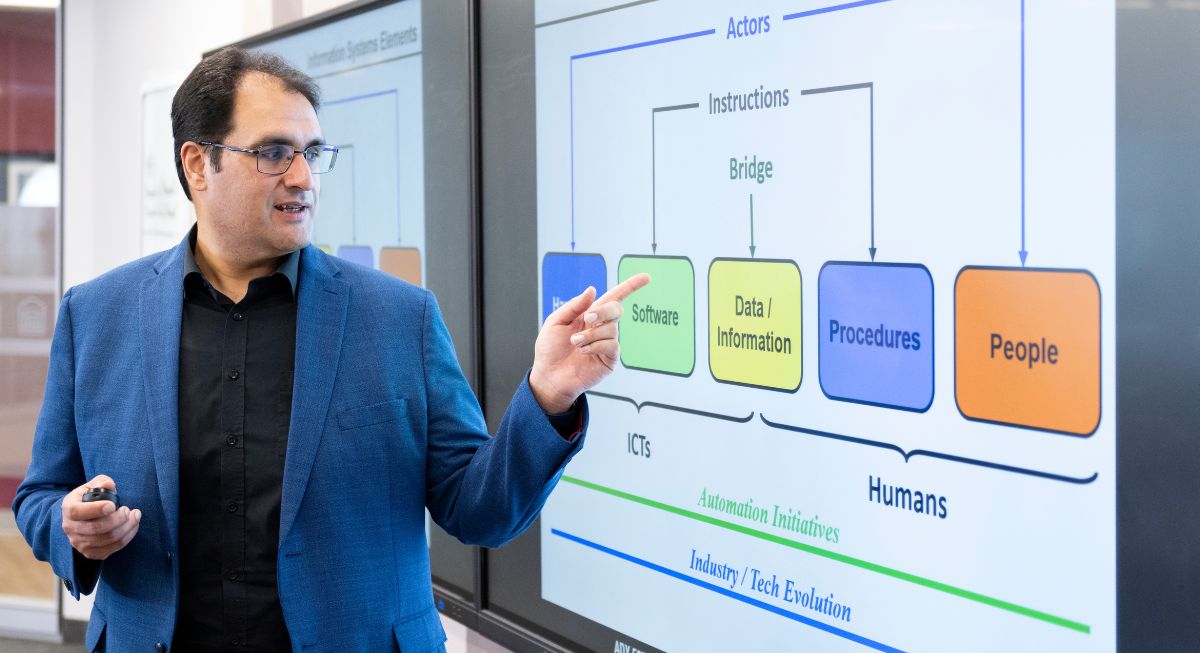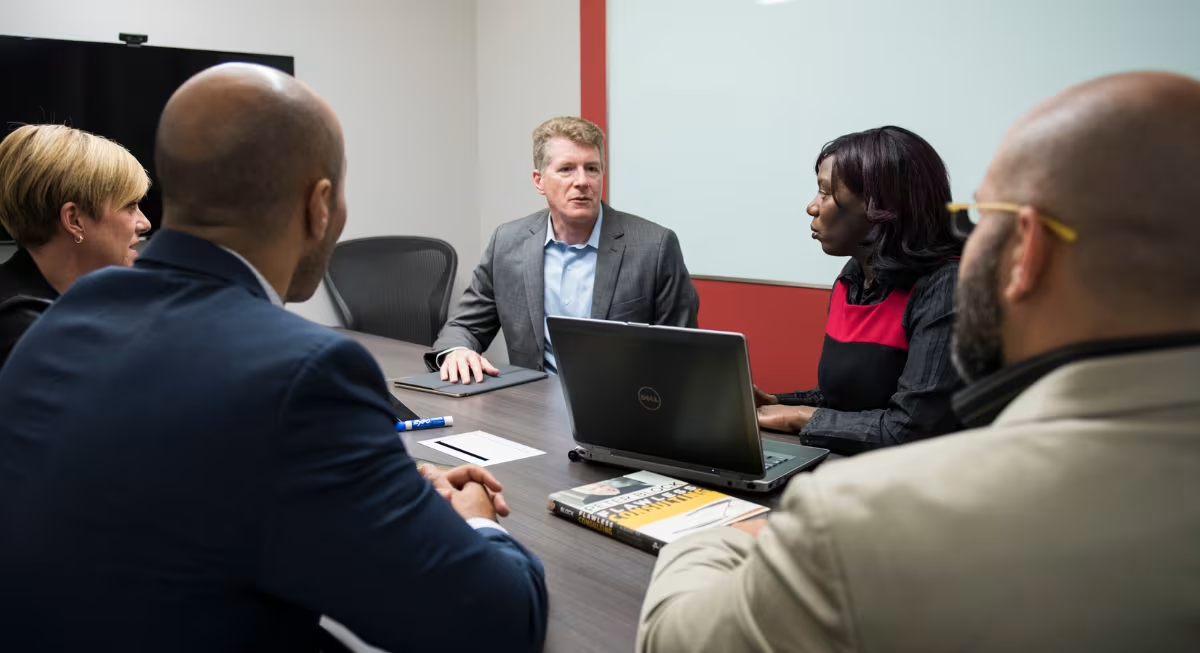Professor Sara Hajmohammad’s expertise in Sustainable Supply Chain Management stands out through her extensive background and passionate dedication to addressing pressing global challenges. In business education, finding an instructor who not only possesses academic excellence but also brings real-world industry experience and a passion for their field, as Professor Hajmohammad does, is a rare gem.
Industry experience and academic qualifications
Professor Hajmohammad's journey spans both academia and industry, enriching her teaching with insights from over eight years of experience in the oil and gas and petrochemical sector. A bachelor's degree in chemical engineering and a master’s in industrial management, she transitioned from a role as a Process Engineer to that of a Quality and HSE Manager, focusing on designing and implementing robust QHSE systems.
Her academic pursuits led her from Iran to Canada, where she pursued a PhD in operations management. It was a natural progression for her to focus her studies in this area due to her work experience around environmental and safety issues in the industry. She centered her thesis on managing sustainability issues within operations and along supply chains, bringing her work experience together with academia. After completing her PhD, her first academic job was at the Asper School of Business, University of Manitoba. She then moved to Ottawa and joined the Telfer School of Management in 2019. Professor Hajmohammad’s multidimensional background allows her to bridge the gap between theory and practice for EMBA candidates in the classroom.
Passion for sustainability
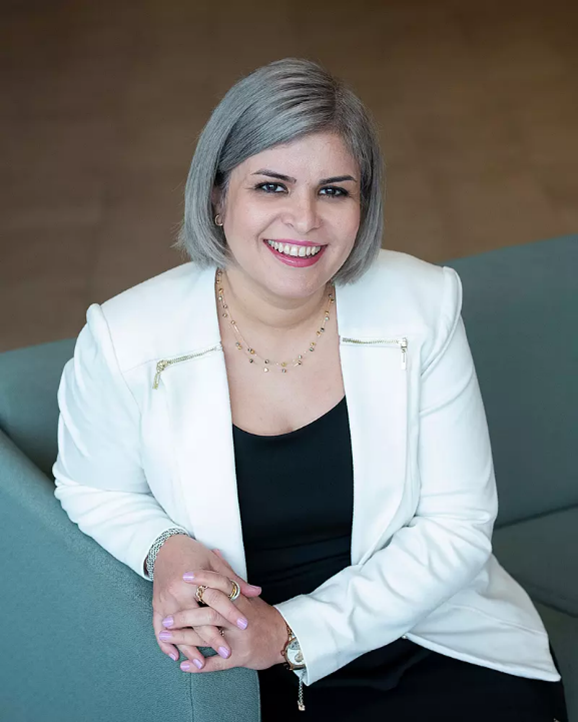
Professor Hajmohammad's commitment to sustainability permeates every aspect of her teaching and research. Drawing from her firsthand experiences witnessing the environmental and social impacts of operations and supply chains, she views sustainability not merely as a challenge but as an area where she can help affect positive change. Her research delves into sustainable operations and supply chains, exploring the dynamics between buying companies and their suppliers, studying how one dominant company can help enforce or motivate other companies in the supply chain to make better decisions for both the environment and the society. Her current research looks at the supply chain sustainability through a risk perspective. “I’m examining how companies can enhance the resilience of their supply chains in the wake of extreme weather events, which are increasing in frequency and severity due to climate change. There are studies that show the next big global challenge will revolve around dealing with the logistics, transportation, and operational disruptions caused by these events in various sectors such as agriculture and food. Most of the initiatives at the national and business levels are mainly focused on climate risk mitigation, for example reducing carbon emissions. But mitigation is not enough anymore. Some of the negative impacts of climate change have already happened, and we really need to start adapting to them. We need to build resilience and be better prepared for the climate risks so that we can respond quickly and recover effectively in their aftermaths.”
Engaging Executive MBA classroom environment
Professor Hajmohammad has been teaching the Sustainable Supply Chain Management course in the Telfer Executive MBA program for three years. She finds the EMBA classroom presents her with a dynamic forum where diverse perspectives converge. She enjoys the interactive nature of discussions, where candidates actively contribute insights from their own professional experiences. Through this exchange, she not only imparts knowledge but also gains fresh perspectives, enhancing her own learning and understanding of the topic.
Practical and relevant teaching approach

In her Sustainable Supply Chain Management course, Professor Hajmohammad adopts a holistic approach to teaching. Beyond imparting theoretical knowledge, she aspires to instill an understanding of all the aspects of sustainability, including environmental, social, and financial. Through a blend of Sharable Content Object Reference Model (SCORM) packages, case analyses, group discussions, and immersive simulations, she empowers candidates to become familiar with national and international sustainability frameworks, to assess diverse environmental and social initiatives within companies’ supply chains, and to critically analyze their sustainability reports. She provides the opportunity for candidates to make actual decisions in a simulated business environment allowing them to see how one small decision, good or bad, can have a significant impact on broader outcomes. Professor Hajmohammad challenges candidates, as decision-makers, to assess and address sustainability issues in their own companies.
Embracing challenging dialogues
The topic of Professor Hajmohammad’s course is controversial on some level. “Each and every candidate comes to the classroom with their own understanding of the sustainability issues and believes in different solutions.” Navigating different perspectives and controversial discussions can be daunting, yet Professor Hajmohammad embraces this as integral to the learning process. Encouraging open-mindedness and respectful debate, she fosters a safe space for candidates to grapple with complex issues and confront divergent viewpoints. This approach cultivates critical thinking skills essential for navigating today’s business challenges.
Professor Sara Hajmohammad’s Sustainable Supply Chain Management course not only equips candidates with the required knowledge and skills, but also instills a sense of responsibility towards building a more sustainable future. “I genuinely believe that sustainability is one of the greatest challenges of our time. I want to make a meaningful contribution in this area – be a part of creating a more sustainable and equitable future for today’s society and for generations to come. I feel that through teaching in the EMBA program, I am making a positive impact by helping to educate decision-makers about the importance of investing in sustainability beyond mere financial considerations. I can make a positive change through their future decisions and actions.”


